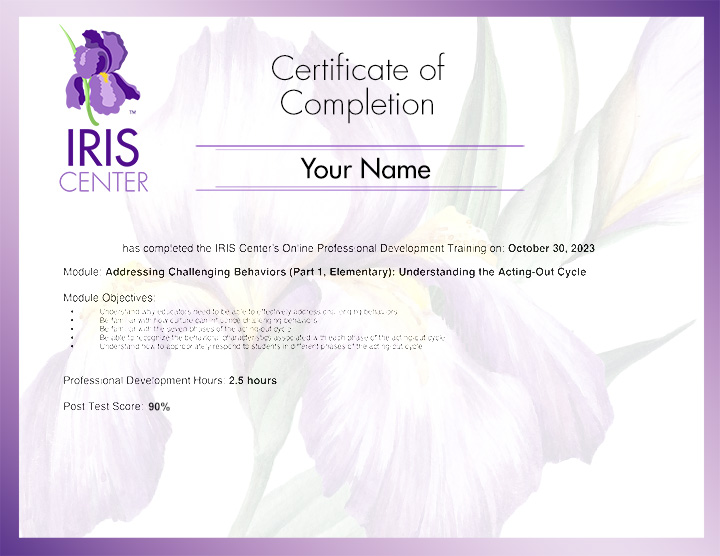SOS: Helping Students Become Independent Learners
You Have Completed This Module
We Value Your Feedback
Please take a moment to share your thoughts on this module by completing our brief Module Feedback Form.
Professional Development Hours
Earn your PD Hours through IRIS! Whether for individual educators or for entire schools and districts, IRIS professional development has something for everyone. Explore our online Professional Development Options.
Related Resources
More information about this module’s subject can be found in these related resources.
Modules
Wraparound Content Maps
These diagrams are designed to help instructors—both college faculty and professional development providers—extend and deepen the information included in our modules and case study units through the use of supporting materials available on the IRIS website, such as activities, and videos. By using these wraparound content maps, instructors can more easily accomplish the task of broadening their own instruction, and hence their students’ learning experiences.
